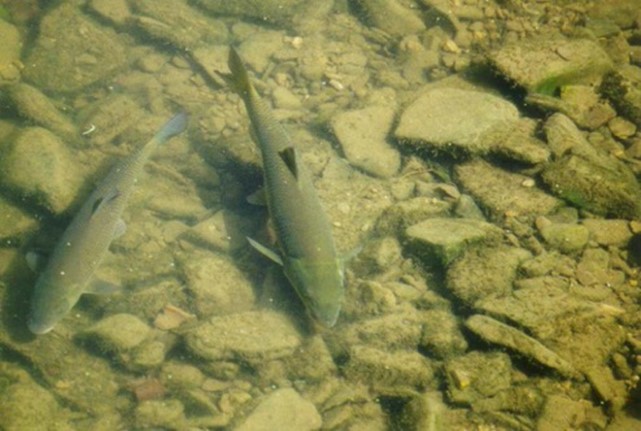Assessment of the ecological status of inland water bodies
The size structure of river fish communities can be used as an indicator of the ecological status of river ecosystems.

The Mediterranean lotic systems (rivers and streams) of the Iberian Peninsula are particularly sensitive ecosystems, affected not only by hydrological alterations and pollution, but also by excessive exploitation and the introduction of exotic species.
Although the Water Directive framework (WFD) explicitly mentions that "ecological status is an expression of the quality of the structure and functioning of aquatic ecosystems associated with waters", most of the tools for the assessment of rivers do not properly represent the functioning of aquatic ecosystems. Therefore, it is a priority to explore and generate adequate tools that allow us to better understand the anthropogenic pressures that affect the functionality of freshwater ecosystems. In this sense, the use of approaches based on the size of organisms, supported by a broad ecological theory, emerges as a promising way to evaluate ecosystems, together with the classical taxonomic analysis based on group abundances and diversity.
Therefore, this line of action proposes to use the size structure of fish communities in Mediterranean rivers as an indicator of environmental alterations in river ecosystems, developing models to estimate the functioning of ecosystems, as well as their variability related to environmental conditions: community energy demand, secondary production, trophic transfer efficiency and biomass turnover rate.
All this will allow the creation of management tools, based on variables related to the size spectrum, to detect the impacts and monitor the alterations caused by climate change and other environmental processes.
